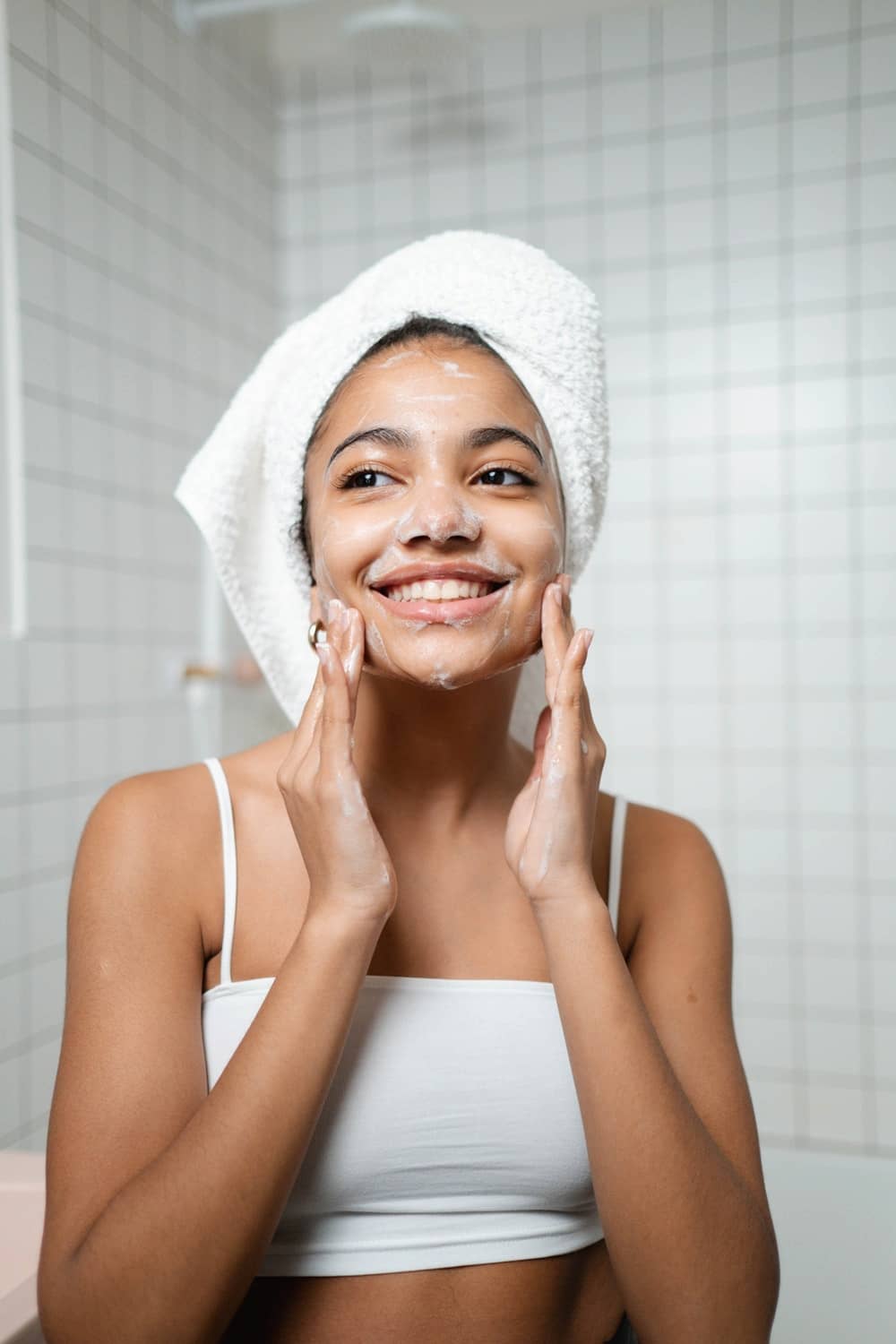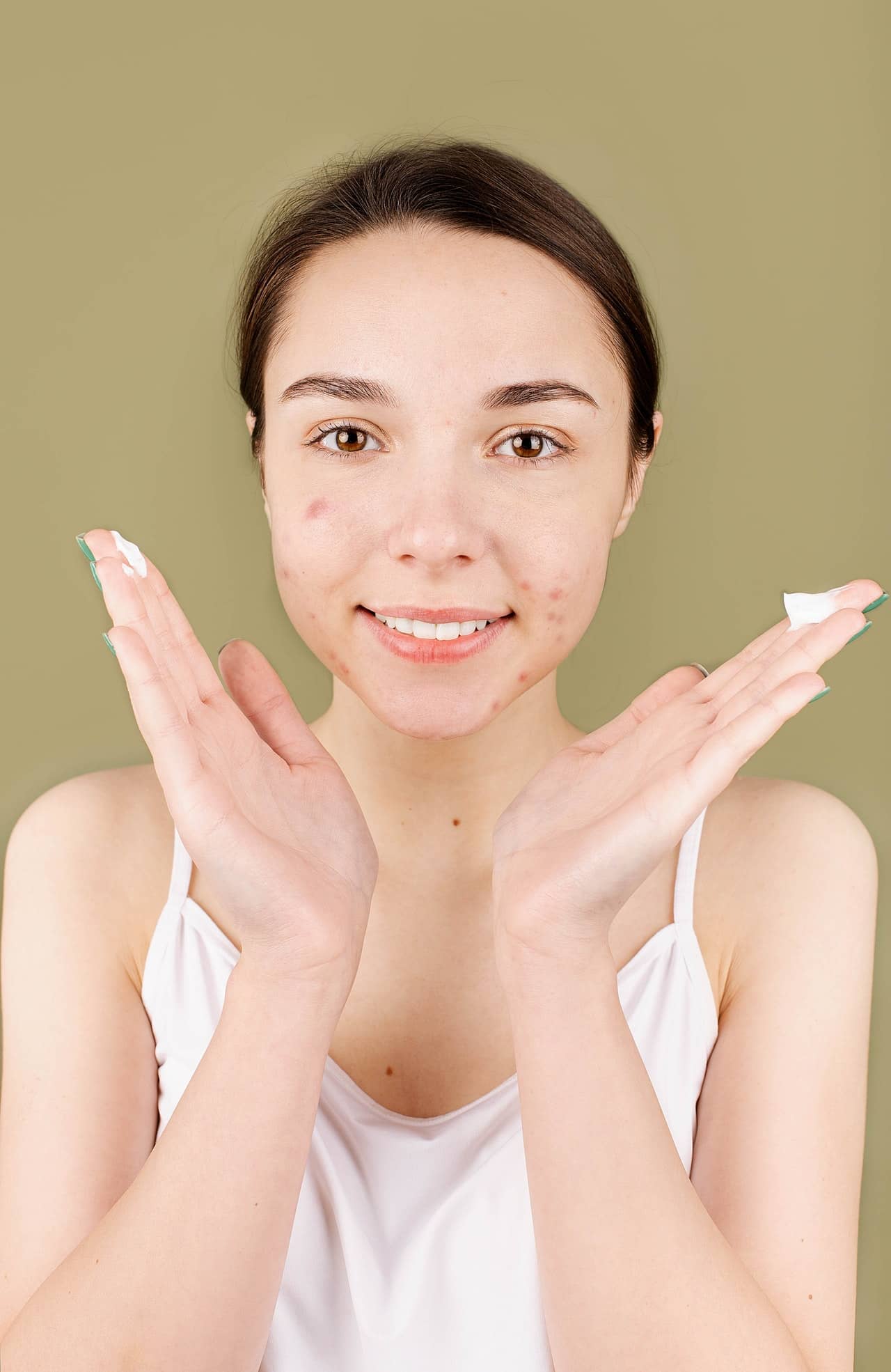Disclosure: Articles may contain affiliate links. As an Amazon Associate, we earn from qualifying purchases (at no additional cost to you). See our full disclosure here.
Last updated on January 10th, 2023 at 03:18 pm
Teenage acne has long been viewed as an expected rite of passage that we all have to go through as we move from adolescence to young adulthood. But because of its visibility and inconvenient tendency to occur during an awkward phase of social development, acne has the unparalleled ability to shatter an adolescent’s self-esteem. And, untreated teenage acne scarring can take a toll on a young adult’s self-confidence long after they’re past adolescence.
Fortunately, thanks to the strides dermatologists have made in acne scar removal in the past few decades, acne scars don’t have to be a burden you carry with you for the rest of your life. Still, it is imporant to know how to prevent acne scarring. As the saying goes, “an ounce of prevention is worth a pound of cure.”

How to Prevent and Treat Teenage Acne Scarring
A Combination of Salicylic Acid and Benzoyl Peroxide (Depending on Your Skin Type)
The key to stopping and preventing acne scarring is making sure that breakouts don’t fester and persist for too long. It’s even better if you can stop them from happening in the first place. Salicylic acid and benzoyl peroxide are two of the most common OTC (over the counter) acne treatments that are readily available. Salicylic acid is found in a majority of acne spot treatments, astringents, face washes, body washes, and moisturizers that target a teenage audience.
One of the main reasons it’s so often used is its unmatched ability to eliminate dead skin cells, which when left to accumulate can trigger a non-inflammatory acne, including blackheads and whiteheads.
Benzoyl peroxide, on the other hand, is a remarkable treatment for severe breakouts, including inflammatory acne lesions. Not only does it dry up excess oil, it also helps to kill acne-causing bacteria and stop the secretion of excess sebum. In fact, it is so effective that for occasional pimples, acne cysts, lesions, or pustules, a quick spot treatment using 3% to 6% benzoyl peroxide can go a long way in improving one’s symptoms.
Retinoids
Any professional scar remover who knows their field will tell you that the application of retinoids is an excellent way to treat and prevent inflammatory acne and teenage acne scarring. You see, retinoids are very well suited for unclogging blocked skin pores and oil ducts to prevent nodules and cysts. They should be next on your list if benzoyl peroxide fails to improve your symptoms.
However, unlike salicylic acid and benzoyl peroxide, retinoids are only available with a prescription. Topical retinoids are most preferred thanks to their convenient application and general availability. Examples of these are Retin-A and Differin gel, both of which increase the skin’s sensitivity to the sun’s UV rays as a downside. Make sure to stay out of direct sunlight while on this kind of treatment.
Isotretinoin, on the other side of the spectrum, is a retinoid that comes in the form of a pill you can take daily. It is much stronger than conventional topical retinoids, so usually dermatologists will only prescribe it if there’s no other feasible option.
Oral and Topical Antibiotics for Lymphatic Drainage
Antibiotics have proven to be quite helpful in reducing the occurrence and severity of teenage acne by inhibiting the activity of the p.acnes bacteria. They often come in topical gels and creams, although it’s also not unusual to come across oral antibiotics for controlling skin breakouts.
That being said, it is critical to avoid misusing antibiotics, or you risk building up a potentially dangerous resistance to their application. See your physician or dermatologists to determine whether your breakouts are serious enough to warrant taking oral antibiotics.
Non-comedogenic Face Moisturizers
Using non-comedogenic skin care products is a must for teenagers with acne-prone skin. This includes anything that you routinely apply to your face, be it sunscreen, face washes, makeup, or moisturizers.
Unlike conventional facial products, special non-comedogenic products do not clog one’s pores — all non-comedogenic beauty products are labeled and usually advertised as such. If not, you will have to assume that it is a comedogenic one.

Skin Hygiene is Paramount to Keeping Whiteheads at Bay
Gently washing your face at least one a day using suitable skin care products is critical for your overall acne-combating plan, but the technique and consistency is just as important. Be careful to avoid overdoing it as this could lead to irritation, and that could spell more breakouts for you or dry out your skin.
Be sure to pat your skin dry gently using a clean soft cloth or towel instead of rubbing it vigorously as this will only irritate your skin and aggravate your symptoms further.
Speaking of cleanliness, warm water is best for cleansing off makeup, oil, and dirt from your face. While cold water is not effective enough, hot water can be too drying.
Exfoliate at Least Once a Week
Apart from nightly and morning washing, nothing puts you on the path to a flawless complexion faster than regular exfoliating. A mud acne musk, for instance, is ideal for helping to prevent almost all types of inflammatory teenage acne and should unclog your pores too.
Aside from getting rid of dead skin tissue, exfoliating also stimulates the underlying epidermis to regenerate new cells which could progressively cover up scars, blemishes, and hyperpigmentation. You may have to settle for gentle exfoliating skin treatments that contain alpha-hydroxy acids and salicylic acid if you have extremely sensitive skin that is prone to breakouts.
Your Daily Skincare Routine Must Include Sunscreen
It’s amazing how many people neglect putting on sunscreen when they head outdoors. Not only does sunscreen help you prevent skin cancer and potential sun damage, it is also instrumental in preventing occasional acne breakouts that may be triggered by sunburns.
Speaking of which, it is particularly important to put on sunscreen if you are using topical retinoids to control your acne. This is because your skin is more vulnerable to sunburn when you are using retinol products. Don’t use just any sunscreen though. Be on the lookout for products that are labeled oil-free and non-comedogenic to avoid worsening your symptoms.
Avoid Wearing Tight Clothing to Prevent Acne
It can be very tempting to try to hide a breakout behind bandanas, masks, or other apparel. However, this can exacerbate your acne by trapping bacteria and oil which can create a breeding ground for acne-causing bacteria. Be extra diligent with your skin care routine if you’re wearing a mask regularly.
Final Thoughts on Teenage Acne Scarring
The science of preventing teenage acne scarring includes stopping the breakouts from happening in the first place. This means making deliberate lifestyle changes, such as adopting a healthier diet and showering immediately after taking part in physical activity. This will go a long way in keeping your pores as clean as possible while making sure inflammation and breakouts don’t creep up on you.
Teenage Acne Scarring Can Be Prevented and Treated (Some Important Tips) | #skincare #beauty #acne Click To TweetPhoto by Ron Lach from Pexels
Photo by Anna Nekrashevich from Pexels
Also read:
Glow Up Challenge + 5 Pages of Printables, Including Daily Trackers to Keep You Motivated
Self-Care Checklist Printable (Free)
You can also find MomsWhoSave on Pinterest, Facebook, Instagram, and Twitter. Join us for updates.
Don’t miss a thing! Subscribe to MomsWhoSave’s newsletter.
Leave a Reply